Bread & Sourdough Recipes
Chocolate Cherry Sourdough
Chocolate Cherry Sourdough Bread Recipe
This sourdough loaf is a delightfully indulgent treat, loaded with chunks of dark chocolate and dried cherries. While it blurs the line between bread and dessert, eating this bread for breakfast is just as acceptable as after dinner.
We used a sweet levain for this dough to minimize sourness and let the flavor of the chocolate and cherries shine through. Often used in enriched sourdoughs and pastry, a sweet levain produces bread with a less sour taste because sugar limits bacterial activity in the levain. Therefore, less acid is carried over into the final loaf. (This loaf will turn out beautifully if you use a regular levain instead of a sweet.)
We took inspiration from our friend Maurizio Leo of The Perfect Loaf and bloomed the cocoa powder in warm oil before incorporating it into the dough. Just as when cooking with spices, this helps to intensify the flavor and give the dough a rich chocolate flavor.

| Prep 24 hours | Cook 35 minutes | Total 25 hours |

| Yield One loaf |
Brød & Taylor Equipment:
Ingredients Sweet Levain
- 8 g Starter
- 8 g Granulated sugar
- 40 g Water
- 40 g All-purpose flour
Ingredients Autolyse
- 240 g All-purpose flour
- 120 g Bread Flour
- 244 g Water
Ingredients Final Dough
- 20 g Cocoa powder
- 19 g Neutral flavored oil
- 96 g Levain
- 42 g Water
- 16 g Sugar
- 8 g Salt
- 100 g Chocolate chunks or chips
- 84 g Dried cherries
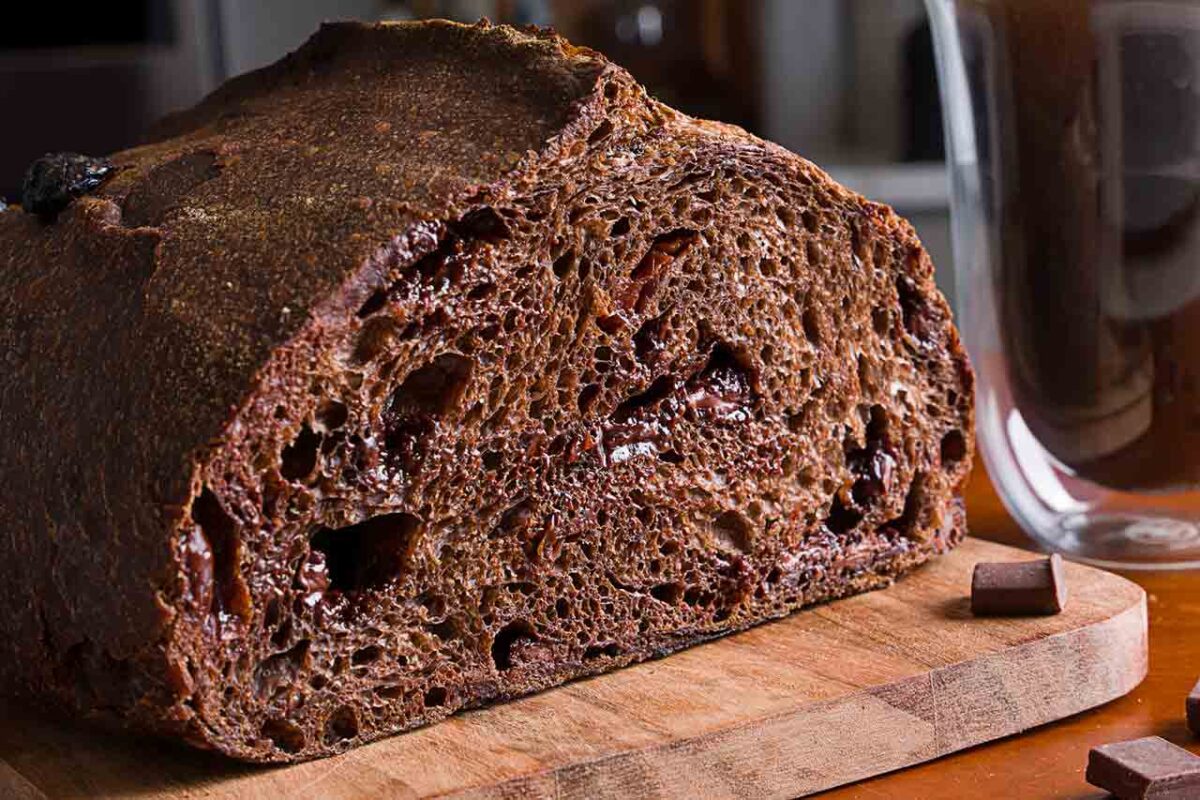
Instructions
- Set up the proofer: Set the Sourdough Home or Proofer to 24°C.
- Mix the sweet starter: In a bowl or jar, mix the levain ingredients until thoroughly combined. Place in then Sourdough Home or Proofer for about 10 to 12 hours. The levain will be ready when it has noticeably increased in volume (about three times in size), is full of bubbles, and has a faint sour aroma.
- Autolyse: Combine both flours and the water and mix until no dry flour remains. Cover and set aside for 30 minutes. While autolyse is resting, bloom the cocoa in oil for final dough.
- Bloom the cocoa: In a small saucepan over medium heat, heat the oil until warm. Add the cocoa powder and whisk until smooth. Set aside to cool to room temperature.
- Mix the dough: To the autolyzed dough, add the levain, sugar, salt, and the half remaining (42g) water. Mix ingredients together by hand until well incorporated. If the dough feels very wet, do not add the remaining water. Otherwise, go ahead and add it. (The dough will stiffen up some once the cocoa and oil are incorporated.) Turn the dough out onto the counter and slap and fold (or knead in the bowl if preferred) for 5 minutes. Place the dough back into the bowl and add the cocoa oil mixture. Knead in the cocoa mixture until no streaks remain. (Optionally, you may incorporate the cocoa less, leaving some streaks remaining. This will give your loaf a marbled appearance.)
- Bulk ferment: Bulk fermentation will take about 4 to 5 hours total. During the first 2 hours of bulk fermentation, folds will be performed and the chocolate and cherries will be added. Set the Proofer to 26°C and put the water tray in the middle of the warming plate. Pour 60 ml of water into the tray and place the rack on top of the tray. Place the bowl of dough in the Proofer. After the first 30 minutes of proofing, remove the bowl from the proofer, sprinkle half of the chocolate and cherries on top, perform the first set of stretch and folds, and then sprinkle the remaining chocolate and cherries on top using your fingers to press gently into the dough. Perform two more sets of stretch and fold at 30 minute intervals. Let the dough rest for the remainder of the bulk fermentation period. At the end of bulk fermentation, the dough will have increased in volume by 1 ½ times its original size and should feel puffy to the touch. If the dough still feels dense, allow it to rise a little longer.
- Shape the dough: Rather than flouring the counter when shaping this loaf, we recommend using a light misting of water to prevent the dough from sticking. Because the dough is dark, we found a dusting of flour could work into the dough and become visible in the final loaf. To shape into a batard: Turn the dough out onto a counter gently press it out into a rectangle, working carefully so that you don’t pop the bubbles in the dough. With the long side of the rectangle facing you, grab the left side of the dough and fold it in toward the center. Repeat with the right side. Grab the top edge of the dough and gently roll it towards you, gently pushing away as you roll to build some outer tension. When you have reached the bottom edge, pinch the seam of the cylinder together and place the dough seam side up in a 25 or 28 cm oval banneton. (This loaf may also be shaped into a round if desired.)
- Final proof: Cover and place in the refrigerator overnight. This loaf can also baked the same day. Instead of refrigerating, place the banneton in the Folding Proofer set to 26°C and allow it to rise for 2 to 3 hours.
- Bake: The next day, about 20 minutes before you are ready to bake, place the Bread Steel in the lower ⅓ of your oven and preheat to 232°C. The steel heats quickly, and when the oven is ready, the Bread Steel will be too. There is no need to preheat the Baking Shell. When the oven is ready, remove the loaf from the refrigerator. Turn the loaf out onto a well-floured bread peel or a piece of parchment paper. Using a sharp knife or bread lame, score the dough. Slide your loaf onto the hot steel and immediately cover it with the Baking Shell. Bake for 20 minutes with the shell on. Remove the shell, turn the oven down to 218°C, and continue baking for another 18 to 20 minutes. Remove from the oven and the loaf on a rack to cool.
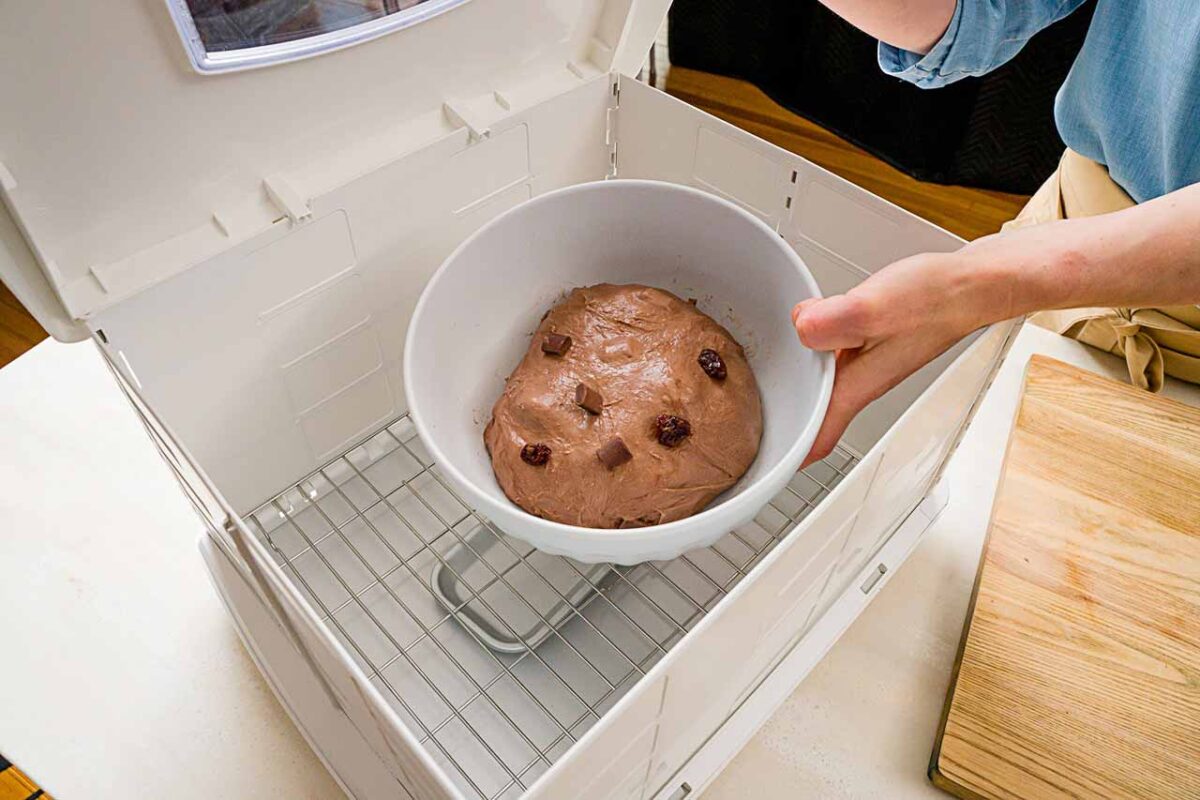
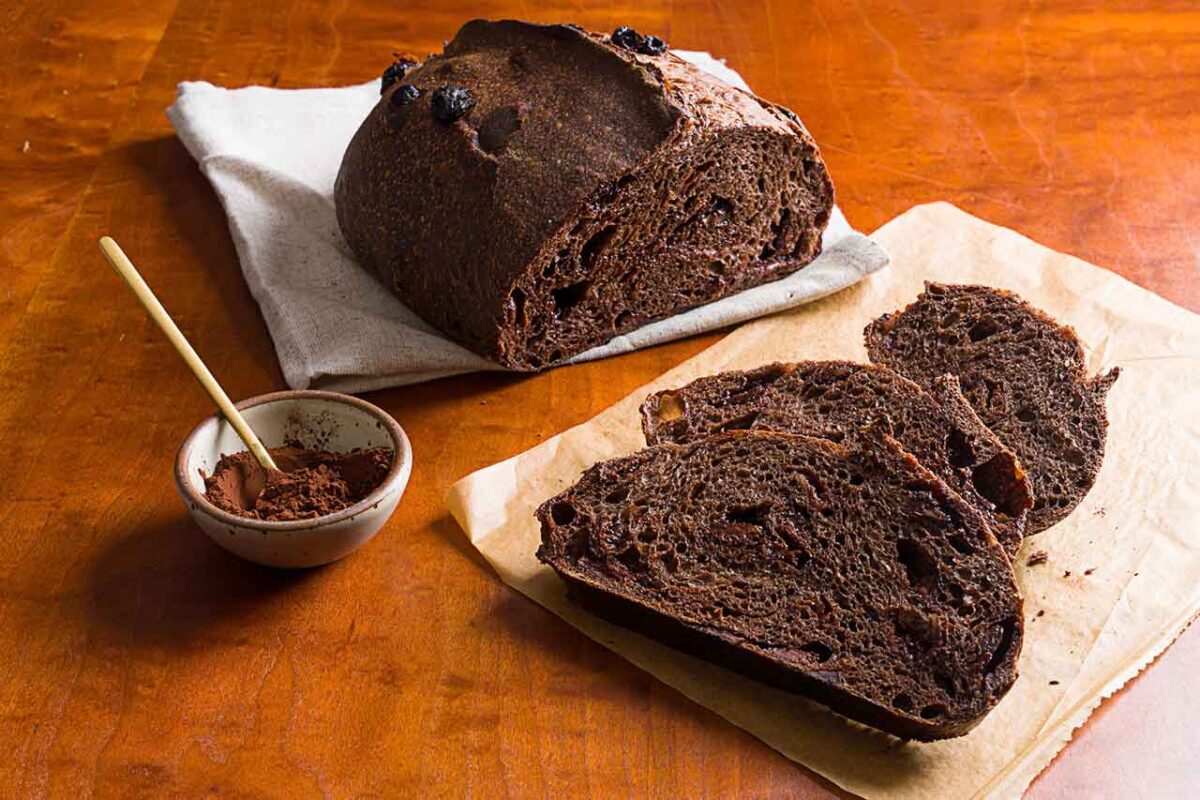

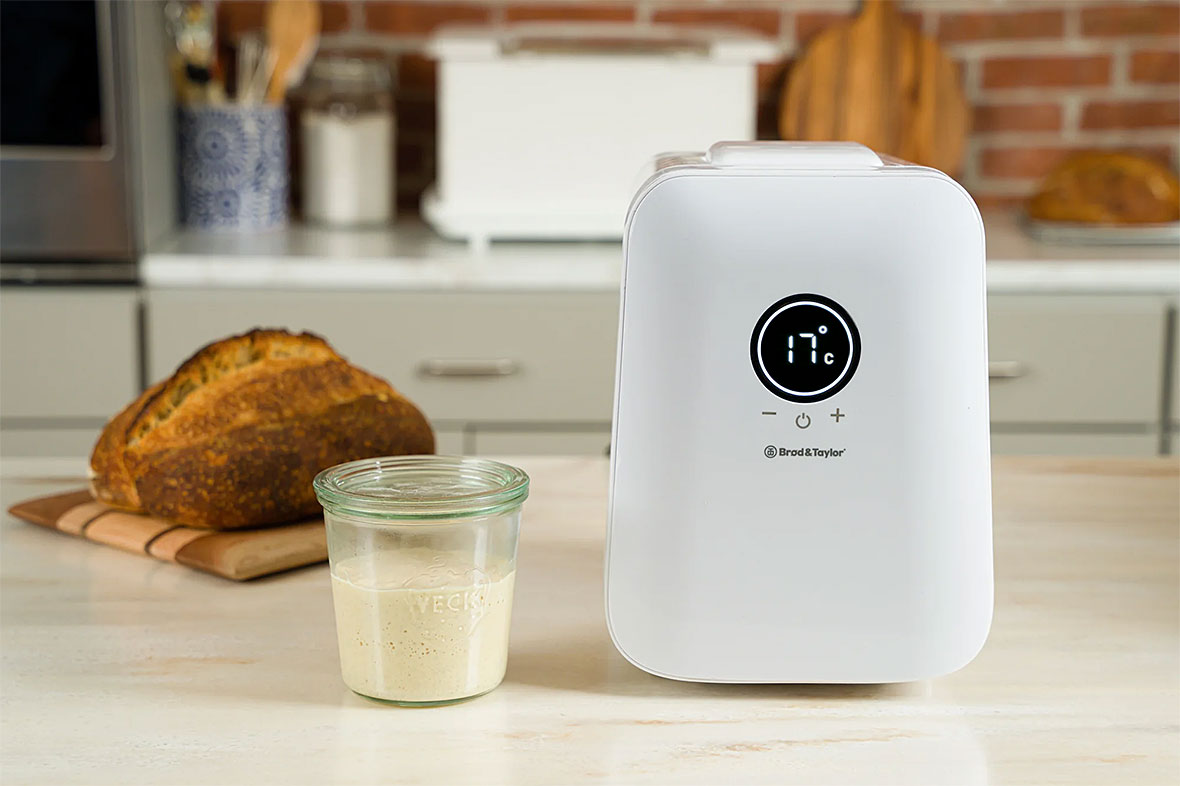
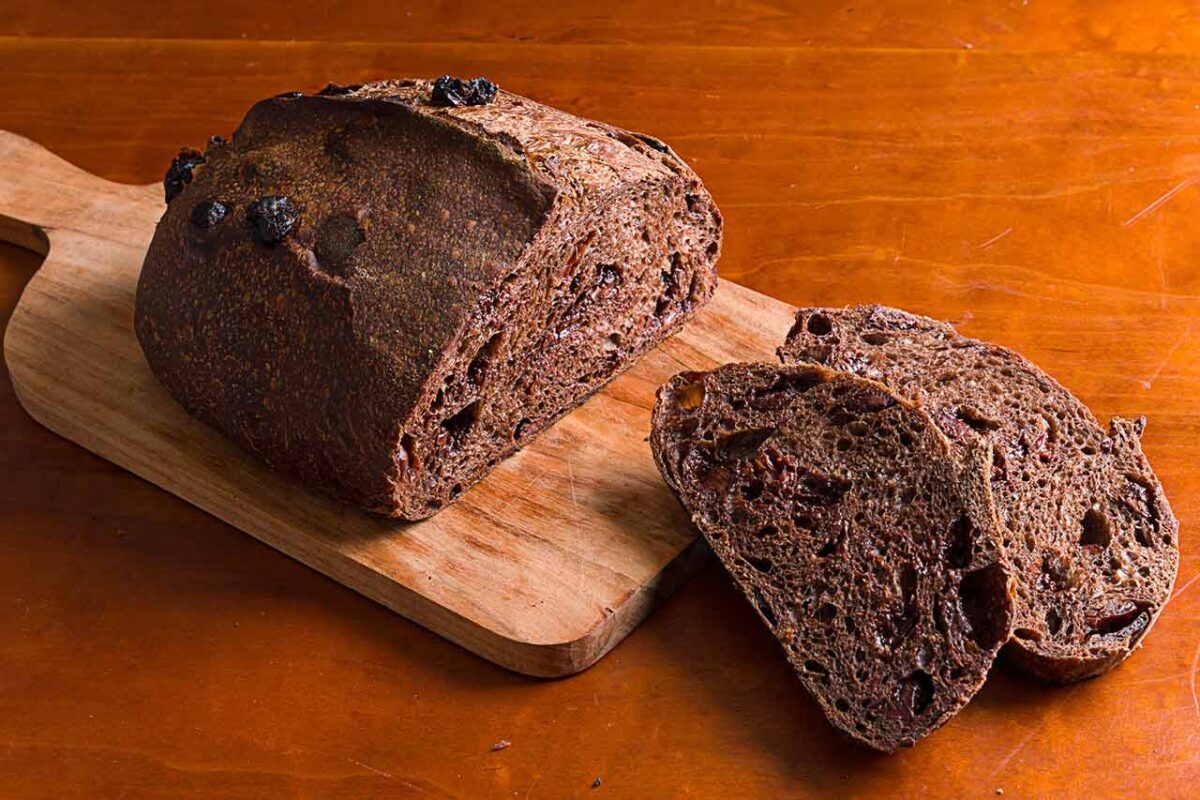
 Select Country
Select Country











